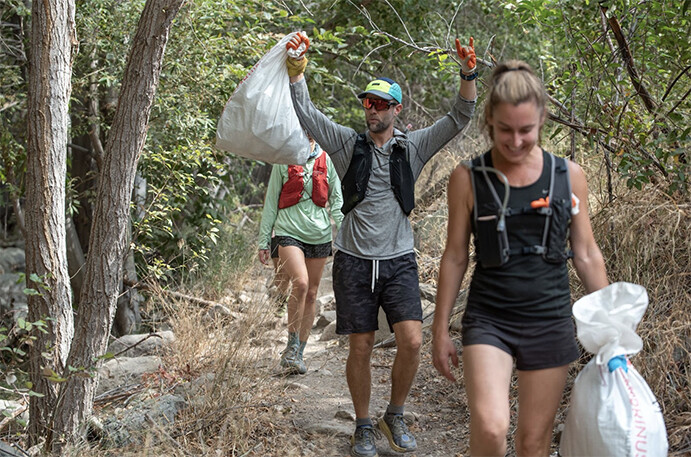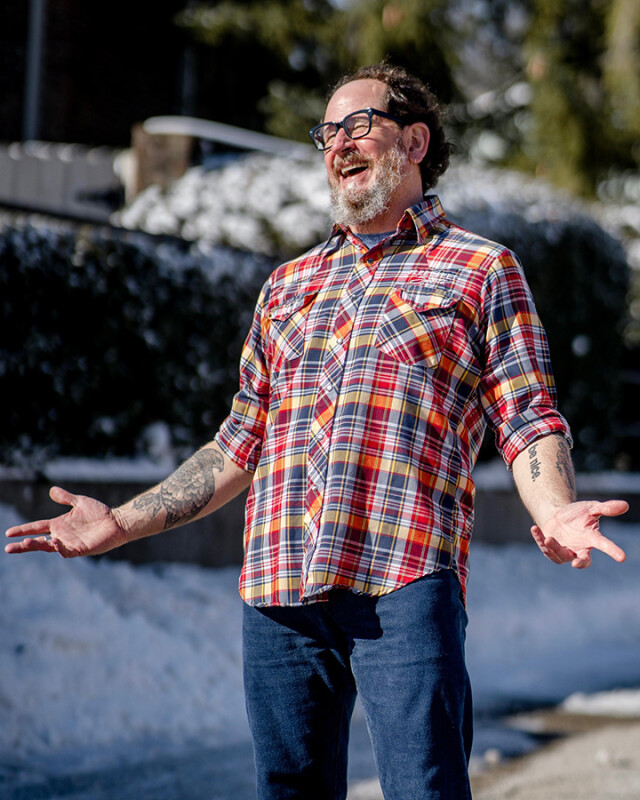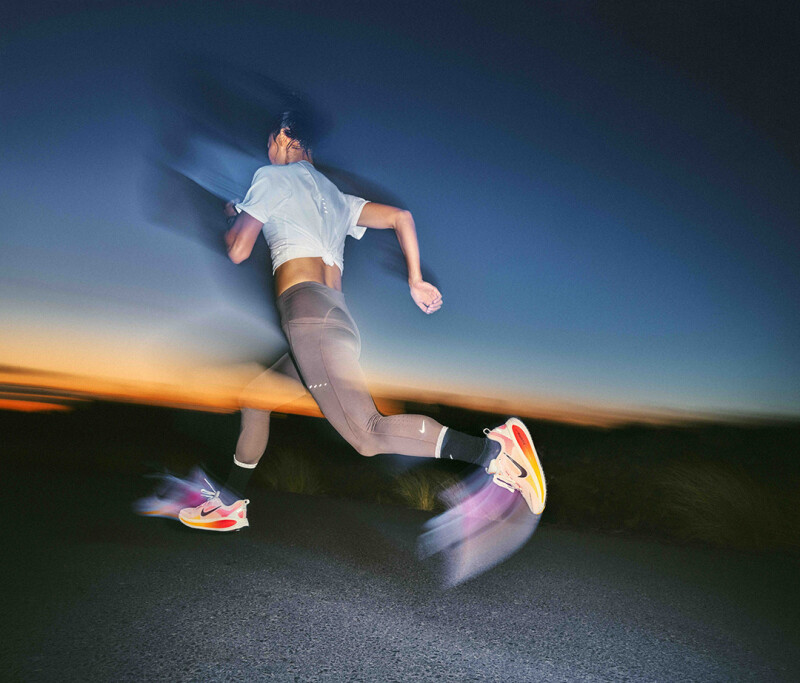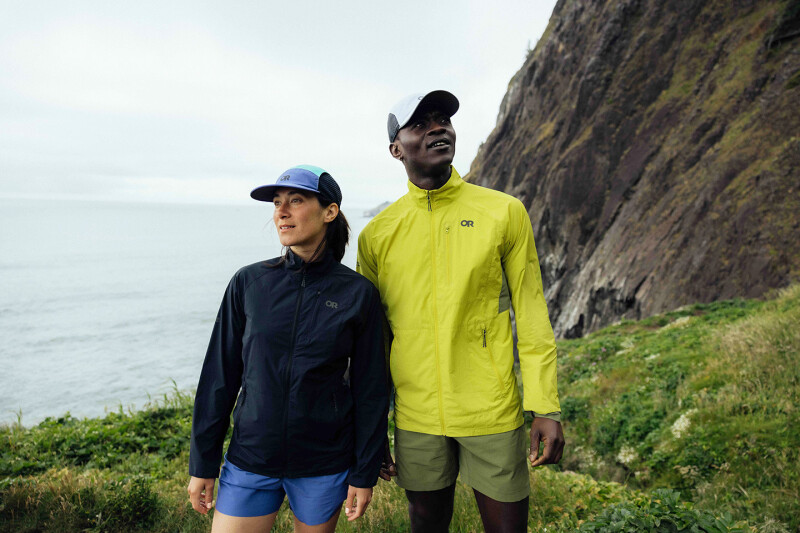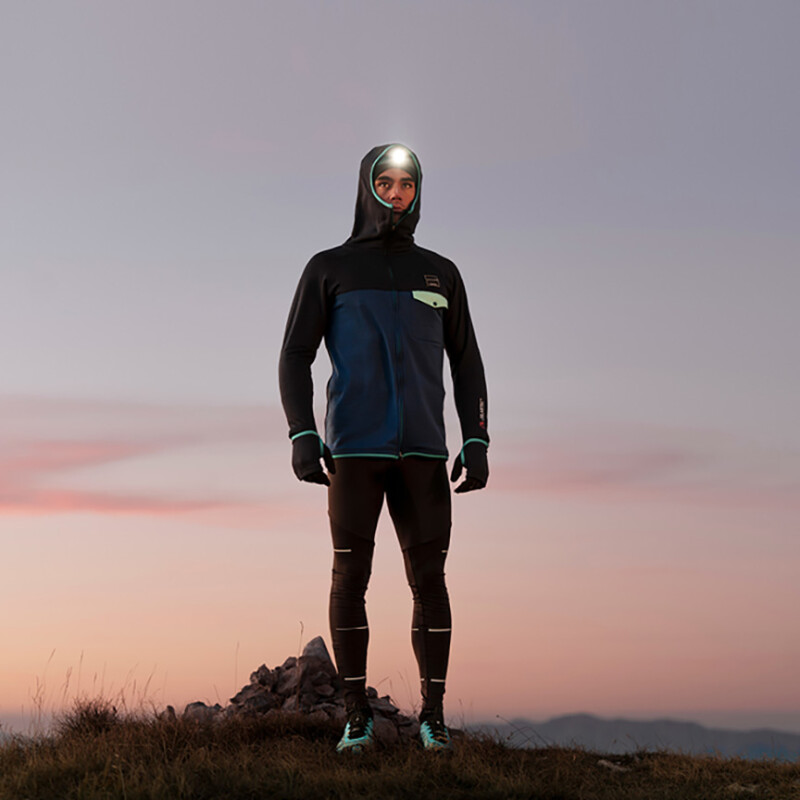At more than 60 million and counting, recreational trail runners might be the fastest growing group of activists our country has ever seen. As more runners hit the dirt, their organic love of the trails is quickly sparking into a larger movement of protecting where they play — whether it’s their local turf or the wider global playing field and its incumbent issues of climate change, public lands, equitable access to nature and product sustainability.
The overarching message trail runners are sending to manufacturers, retailers and brands today is that if commitment to the planet isn’t part of the purchase price, then they will buy from corporations who are working harder to make a difference.
Who Is RPL?
Runners for Public Lands (RPL) is a 501(c)3 nonprofit organization located in Ventura, CA. Since 2019, this grassroots organization has been quietly leveraging the power of local running communities to promote advocacy on environmental issues, build diversity and inclusion and connect runners with brands and organizations who align and advance the mission of protecting the environment and ensuring the trails are open and available to anyone who wants to set one foot in front of the other.
In the past year, RPL has launched its first toolkit, identified strategic plans to accomplish environmental goals and hosted local Southern California events that solidified its presence as an organization dedicated to positive environmental change and social justice through milestones, including:
- Joined Ventura’s Westside Clean Air Coalition to stop poorly planned, toxic soil removal and the expansion of a dangerous compression station across the street from a local elementary school and after-school club.
- Hosted Patagonia “Run To” Film Screening: “Corriendo para salvar una Cuenca (Run to Save a Watershed)” featuring Patagonia trail runner and activist, Felipe Cancino.
- Named beneficiary for 2021 Women Run the Vote, presented by Oiselle and Run for All Women; the 900-plus mile relay event focused on the relationship between environmental justice and indigenous sovereignty.
- Released a Statement in Support of Transgender Youth in conjunction with the Running Diversity Industry Coalition
- Established Student Runners for Public Lands, a pilot youth club that builds inclusive youth-running communities dedicated to protecting the environment.
- Named beneficiary for Trail Runner Magazine’s #MatchTheirMiles 2021 Earth Day event.
- Established RPL’s National Advisory Council, led by Zoë Rom, the first female Editor-in-Chief of Trail Runner Magazine.
Future, short-term goals for this young organization include educating runners on environmental issues, creating new programs and initiatives that will diversify the trail running community, expanding RPL’s geographic footprint throughout the United States and partnering with organizations whose values align with the RPL mission of social justice and environmental stewardship. Longer-term goals include scaling to a nationally recognized entity in order to do the most good for the greatest amount of people and public spaces — while retaining an organic, grassroots enrollment.
Building Brand Trust
RPL recognized early on that monthly and weekly running groups don’t only increase awareness of the need for environmental stewardship. They also boost a sense of belonging, which carries over to any brand willing to extend itself as an essential part of the experience.
Community trail running events inspire participants with opportunities to explore and celebrate naturally beautiful landscapes. With the support provided in these events, runners can also venture into amazing places and purchase equipment needed to experience these places on their own — and leave with an even greater sense of urgency to protect the planet’s sacred resources.
Corporations and organizations who partner with RPL become part of this circle of belonging and, in turn, can capitalize on unique opportunities to build brand loyalty among their target demographics.
Today’s trail runners consider a variety of factors when making running-related purchases that go beyond function and quality. They also want to know that their spending is aligned with their personal beliefs and that the corporations and retailers they purchase from share a sense of stewardship for the lands that make their sport possible.
“ROI is a really good metric for success within a business landscape, but not all investments should be held to this metric,” says Jess Rogers Bloom, president of RPL’s board of directors and global product lead of the Trail Running and Hike Categories at Patagonia.
“If a brand is solely interested in what they can get monetarily from a partnership, then it’s most likely not the right relationship,” Bloom adds. “Investing in RPL means investing in our vision of creating more inclusive running communities and a dedication to protecting the environment, building community and opening equitable access to nature.“
Social and environmental justice have been key brand differentiators for many years and have built allegiance with consumers in both the running and outdoor industries. By fostering relationships with running communities, manufacturers and retailers can better understand differing land, social and climate priorities of these groups and engage at a whole new level.
Running is a sport that requires very little gear. When it comes to runners choosing a brand, they are more likely to consider where products are made, how their buying dollars protect public lands and the impact of their purchase on the environment.
Gaining From An RPL Partnership
For a young organization, RPL already has a very organized corporate membership focused on tiers of protection of the environment and corresponding benefits for partners.
“Corporations and retailers who partner with us can expect a mutually beneficial relationship,” explains John Meadows, a member of the RPL board and manager–North American marketplace for Hoka. “As we continue to grow and prioritize pillars within our mission, we challenge our community to think differently while supporting them with programs like the Race Director Resource Hub, Everyone Runs Fund, Environmental Toolkit and other resources.
“In turn, we rely on the action of our partners to promote our programs and advocacy across their platforms and support the development of new initiatives,” Meadows adds. “We all need each other to make a larger impact on our world.”
Through its Brand Coalition and Corporate Membership Program, RPL makes it easy for sponsors to get started with a robust set of resources, including:
• Exclusive opportunities to sponsor RPL programs, such as the Race Director Resource Hub.
• Use of RPL logo digitally, at events and through brand collaborations.
• Features in RPL’s rapidly growing monthly RPL newsletter and opportunities to further engage with its running communities.
• Exclusive sponsorship/partnership of events, such as the highly attended Environmental Sustainability Panel Discussion at the Leadville 100.
However, partnership with RPL goes far beyond these deliverables and enables brands to provide hard evidence that they are making an impact in the global community, including implementing Terracycle at races, planning trail clean-ups and expanding beyond grassroots efforts to organically grow into a regional and national presence able to take on even greater challenges.
Making An Impact
These are precisely the kind of initiatives today’s consumers are seeking. In establishing a company as an advocate for meaningful change, going beyond ROI to the greater intangibles of consumer trust, brand loyalty and welcome conversations with customers willing to listen to messaging throughout their lifetimes. This cannot be measured in graphs and surveys.
“As runners, we move slower, we are human powered, and therefore often have time to notice the little things on the trail, spend more time taking in the beauty around us and use our runs to reflect on our days, the news and how we feel,” says Kathleen Baker, RPL’s managing director. “Sustainability can come in the form of trail maintenance, where and how our clothes are made, protecting the public lands we run on and fighting for voices that have been marginalized. Regardless, it is now a part of many runners’ decision-making and a priority in how we as consumers invest as well as what we expect from the brands that we engage with.”
Putting RPL To Work
Many companies invest significant time and research dollars in order to establish themselves as a responsible corporate entity by making claims and initiating efforts close to the hearts of their biggest buyers.
Working in tandem with a non-profit such as Runners for Public Lands not only eliminates that internal burden for a company, it also welds a brand or retailer to an aspirational ethos that enables buyers to think of themselves as beyond the subculture of consumption.
Partnership with RPL eliminates this element of proof because RPL is agile enough to show consumers how and where their dollars make a difference — from its diverse representation on its board and National Advisory Committee, low overhead and women-led status to its supportive approach integrating belonging, natural history and environmental stewardship into trail running events.
Most trail runners consider their time on the dirt a gift and they cherish the land they run on that makes that possible much more than the gear they wear to make it happen. Today’s consumers know they can spend their money on many companies that claim to be part of the sustainability movement.
However, Millennial and Gen Z consumers are far more savvy and will dig deep to discover what these “green” claims actually mean. For brands that want to go beyond selling and truly capture the hearts of their consumers, partnerships with nonprofits like RPL not only increase loyalty, but can build lifetime relationships within fresh demographics who care about climate change, sexism, racism, homophobia and human wellness as much as they do for their own personal comfort.
